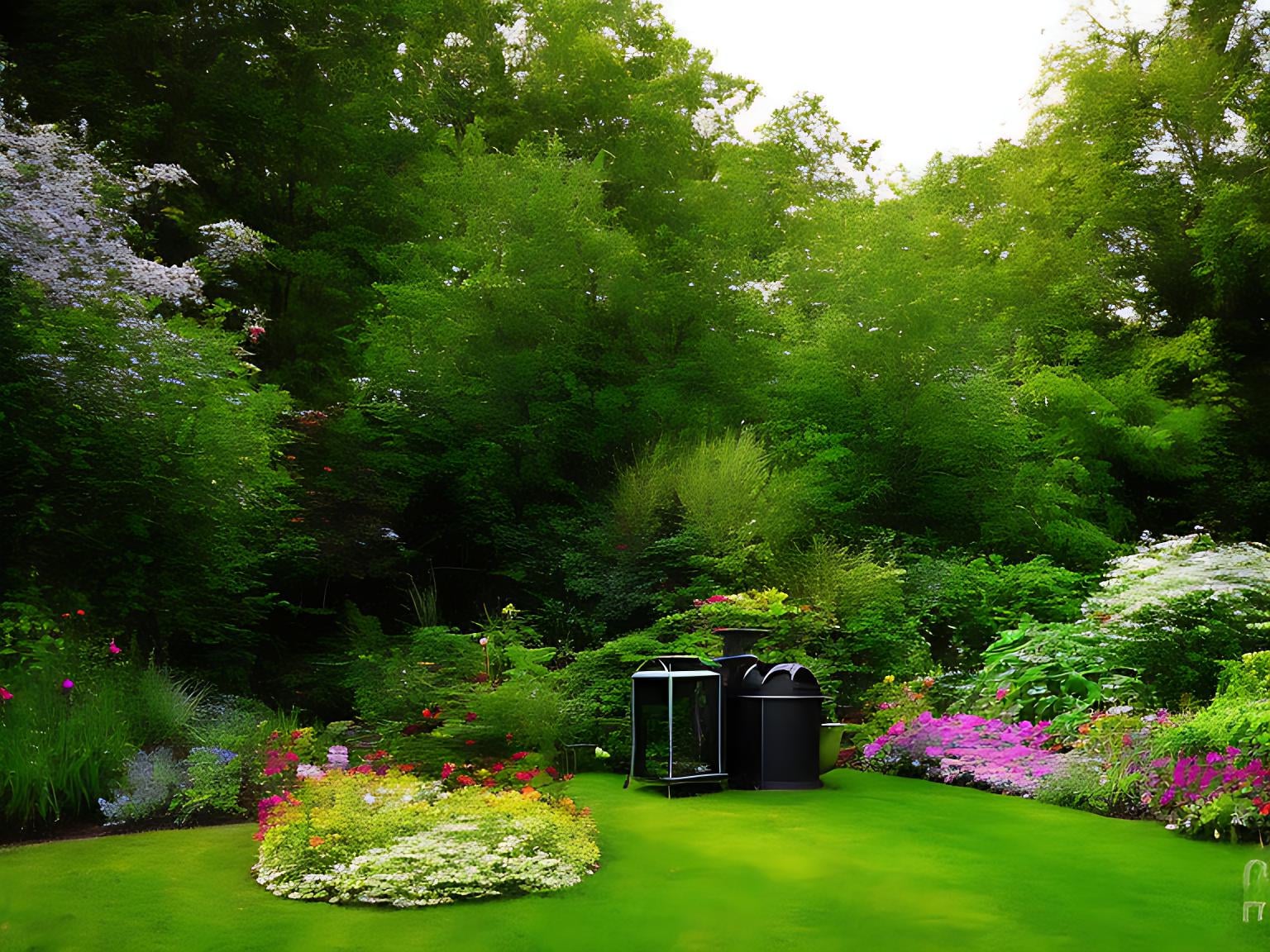Last Updated on
Using a garden incinerator in the UK can be both convenient and beneficial, but is it legal? As you might have guessed, there are regulations that come into play when using this type of device. This blog post will answer the question: Is it legal to use a garden incinerator in the UK? We’ll also discuss some of its benefits and disadvantages as well as alternatives if you decide not to use one. So if you’ve been wondering whether or not your burning desires (for an efficient way to get rid of waste) could become a reality without breaking any laws – keep reading.
Table of Contents:
- UK Regulations on Garden Incinerators
- Benefits of Using a Garden Incinerator
- Disadvantages of Using a Garden Incinerator
- Alternatives to Using a Garden Incinerator
- Conclusion
UK Regulations on Garden Incinerators
The use of garden incinerators in the UK is regulated by a number of laws and regulations. These are designed to protect people, animals, and the environment from potential harm caused by burning waste materials.
In England and Wales, anyone who wishes to burn material in an open fire must first obtain a permit from their local authority. This includes garden incinerators. The application process for this permit can vary depending on your local authority’s requirements but generally involves providing details about the type of fuel you plan to use as well as any safety measures that will be taken when using the incinerator.
When using a garden incinerator it is important to remember that some items should never be burned due to their hazardous nature or because they release toxic fumes when burned such as aerosols, paints, plastics, tyres etc. Burning these materials can cause air pollution which can have serious health implications for both humans and animals alike. It is also illegal in most areas so always check with your local council before burning anything other than dry plant matter, such as twigs or leaves.
It is also important to note that some councils may have additional restrictions on what types of fuels you are allowed to burn in an open fire or garden incinerator within their area, including bans on certain types of wood such as treated wood or coal/coke products. Therefore, it is advisable to check with your local council before lighting up your burner in order to avoid any potential legal issues.
In the next section, let’s discuss the benefits of using a garden incinerator.
Benefits of Using a Garden Incinerator
A garden incinerator is a great way to reduce the amount of waste that accumulates in your garden. Not only does it help keep your outdoor space tidy, but it also helps you dispose of organic materials quickly and easily. Here are some of the benefits of using a garden incinerator:

1. Quick Disposal – Garden incinerators make disposing of organic materials much faster than traditional methods such as composting or burning them on an open fire. This means you can get rid of unwanted items more quickly, allowing you to spend less time dealing with waste and more time enjoying your garden.
2. Reduced Odors – Burning organic material in an enclosed container reduces odours significantly compared to burning them on an open fire or leaving them out for animals to scavenge through. This makes it ideal for those who want their gardens to smell fresh without having to worry about unpleasant smells from decomposing matter.
3. Environmentally Friendly – Using a garden incinerator is better for the environment than other disposal methods because it produces fewer emissions than traditional fires or compost piles, which can release harmful gases into the atmosphere if not managed properly. Additionally, many modern models come equipped with filters that trap pollutants before they’re released into the air, making them even more eco-friendly options for getting rid of unwanted items in your yard or garden area safely and responsibly.
Next, let’s take a look at the disadvantages of using a garden incinerator next.
Disadvantages of Using a Garden Incinerator
Using a garden incinerator can be an effective way to dispose of garden waste, but there are some potential drawbacks that should be considered before investing in one.
Smoke Pollution:
Garden incinerators produce smoke and fumes which can cause air pollution. Depending on the type of fuel used, these emissions may contain hazardous substances such as carbon monoxide and other toxins. This could have a negative impact on local air quality and could even lead to health problems for those living nearby.
Fire Risk:
Garden incinerators generate high temperatures which can pose a fire risk if not handled properly or monitored closely. The risk is increased when combustible materials such as paper or cardboard are burned in the unit, so it’s important to only burn suitable items that won’t increase the risk of fire spreading beyond the confines of your garden.
Noise Pollution:
Some models of garden incinerators produce loud noises when they are running which could be disruptive for neighbours who live close by. If you plan to use an incinerator regularly then it might be worth considering whether noise levels will become an issue before purchasing one.
Cost:

Although some basic models may seem relatively inexpensive at first glance, you should factor in any additional costs associated with running them over time (such as fuel). In addition, many local authorities require permits for burning certain types of material in gardens – this may incur further costs depending on where you live and what regulations apply locally.
Using an incinerator is not necessarily environmentally friendly despite its convenience factor. However, there are alternatives available that may be more suitable for your needs and situation. Let’s take a look at those now.
Alternatives to Using a Garden Incinerator
When it comes to disposing of garden waste, there are several alternatives to using a garden incinerator. Composting is one of the most popular and environmentally friendly options for getting rid of organic material like leaves, grass clippings, and vegetable scraps. This process involves breaking down the materials into nutrient-rich soil that can be used in gardens or other landscaping projects. It’s also an easy way to reduce your carbon footprint by reducing the amount of trash sent to landfills.
Recycling is another great option for dealing with yard waste, such as branches, twigs, and logs. Many local governments offer curbside collection services where you can put these items out on designated days for pickup and recycling. The recycled materials are then turned into mulch or wood chips, which can be used in gardens or flower beds instead of buying new products from stores.
If you have large amounts of yard waste that need disposal quickly, consider hiring a professional hauling service to take care of it for you. They will come to pick up all your unwanted debris at once. Plus they usually provide compostable bags, so everything gets disposed of properly without any mess left behind.
Finally, burning yard waste is still allowed in some areas but should only be done under strict safety guidelines since it releases harmful toxins into the air if not done correctly. If this is something you’re considering doing make sure to check with local regulations first before lighting anything up.
Conclusion
So, is it legal to use a garden incinerator in the UK? In conclusion, it is important to understand the regulations and restrictions when using a garden incinerator in the UK. While there are benefits to using an incinerator such as reducing waste, it is important to consider any potential risks or dangers associated with its use. Ultimately, whether or not it’s legal to use a garden incinerator in the UK depends on where you live and what local regulations may be in place – so make sure you do your research before deciding if this is the right option for you.
Paul is the type of person who never met a problem he couldn’t fix. He can always be found tinkering with something in his house, even if it isn’t broken! His tips and tricks are often shared on our site. He’s the one you call when something breaks because he has been known to improvise fixes for everything from leaky faucets to malfunctioning dryers.



